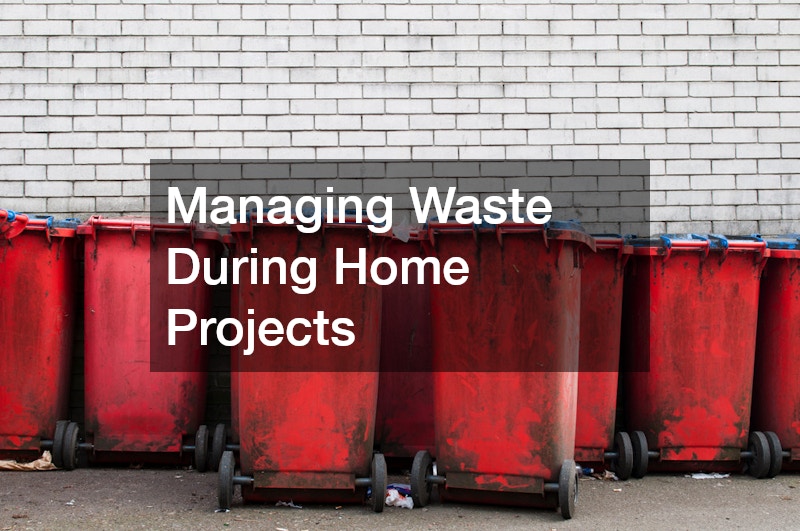Every homeowner knows that a house is more than just walls and a roof—it’s a living system made up of interconnected parts that require attention and care. From electrical components to plumbing, roofing, heating, and landscaping, your property functions smoothly only when every element works together. Maintaining your home systems doesn’t just keep things running—it helps prevent expensive surprises, improves efficiency, and preserves your home’s long-term value.
However, many homeowners struggle to determine which systems require regular maintenance and which ones eventually need to be replaced. Neglecting these essential components can lead to costly breakdowns and even safety hazards. The good news is that with careful planning, proactive inspections, and a well-structured schedule, you can stay ahead of potential issues before they escalate into major repairs.
In this guide, we’ll explore the key aspects of maintaining your home, identifying signs that indicate it’s time for upgrades or replacements, and outlining smart strategies for long-term planning. Whether it’s energy management, plumbing care, or exterior upkeep, understanding these elements will help you protect your investment and ensure comfort, safety, and reliability year-round.
Ensuring Reliable Power Supply
One of the most critical components of your property’s infrastructure is the electrical system. Power outages can occur at any time, especially during storms or high-demand seasons, disrupting comfort and safety. Installing a whole house generator provides a reliable backup power source that automatically activates when utility power fails. This ensures that essential appliances, heating systems, and security features remain operational even during blackouts.
Regular inspections of electrical panels, circuits, and wiring are vital parts of home systems maintenance. Faulty wiring or overloaded circuits can pose fire hazards, so periodic evaluations by a licensed electrician can identify and resolve issues early. It’s also beneficial to replace aging outlets, surge protectors, and extension cords to maintain safety and compliance with current standards.
When choosing a generator, consider fuel type, capacity, and automatic transfer switch options. Professional installation ensures proper grounding and connection to prevent back-feeding risks. A whole-home power plan not only improves convenience but also adds value to your property. By investing in dependable power solutions, you guarantee continuity and peace of mind no matter what conditions arise.
Keeping Your Heating System in Peak Condition

Few things affect comfort more than a functioning heating system during colder months. Regular Heating repair and maintenance are essential for preventing breakdowns, improving energy efficiency, and extending your equipment’s lifespan. Filters should be replaced every few months to maintain air quality, and annual professional tune-ups help detect issues like worn belts, faulty igniters, or carbon monoxide leaks before they become emergencies.
A proactive approach to heating maintenance also reduces operating costs. When a furnace or boiler is clean and properly calibrated, it burns fuel more efficiently, reducing energy consumption and utility bills. According to the U.S. Department of Energy, neglecting regular service can reduce system efficiency by as much as 5% per year.
Incorporating heating care into your homes plan ensures reliability throughout the year. Pay attention to unusual noises, inconsistent heating, or a sudden spike in bills—these may indicate underlying problems. Early repairs not only save money but also help preserve indoor comfort levels for your family. When temperatures drop, a well-maintained system guarantees dependable warmth when you need it most.
Maintaining a Strong and Secure Roof
A durable, well-maintained roof is your home’s first defense against weather damage. Over time, exposure to rain, wind, and sunlight can deteriorate materials and compromise structural integrity. Planning for timely roof replacements helps avoid costly water damage, mold growth, and insulation loss that can affect the entire property.
Inspections should occur at least twice a year, especially after severe weather events. Look for cracked shingles, rusted flashing, or sagging areas that could signal deeper problems. Preventive maintenance also includes cleaning gutters and downspouts to ensure proper drainage. When water is allowed to pool, it can lead to leaks that infiltrate other parts of your home systems.
When replacement becomes necessary, investing in high-quality materials pays off long-term. Modern roofing products offer better insulation, energy efficiency, and resistance to harsh conditions. Partnering with a reputable contractor ensures compliance with building codes and proper installation techniques. A sturdy, well-installed roof enhances not only protection but also curb appeal and resale value.
Maintaining Your Septic and Waste Management Systems
Proper wastewater management is an often-overlooked aspect of home ownership. When you schedule a local septic replacement, you’re investing in sanitation and protecting your property’s health. Older or poorly maintained septic systems can lead to backups, foul odors, and contamination of nearby groundwater.
A key part of home systems management involves regular pumping and inspection every three to five years. Professionals check for tank integrity, drainage field performance, and signs of blockages. Neglecting this vital maintenance can result in expensive replacements or environmental damage.
For properties using older systems, upgrading to more efficient, environmentally friendly designs can improve long-term performance. Advanced systems process waste more thoroughly while reducing the risk of leaks. Implementing water conservation habits—such as repairing leaky faucets or using low-flow fixtures—can also extend the life of your septic setup. Maintaining this essential infrastructure keeps your home safe and compliant with local environmental regulations.
Securing Your Property and Family

Security is a top priority for homeowners. Partnering with professional locksmith companies helps ensure that your locks, keys, and access systems remain reliable and up to date. Over time, locks can wear out, keys can break, and security technologies can become outdated. By upgrading or rekeying locks periodically, you protect your home from intrusions and increase peace of mind.
Many locksmiths now offer smart lock systems that integrate with your home systems, allowing remote access and real-time monitoring. These modern solutions provide convenience for busy families and property owners who manage multiple access points.
In addition to entry doors, it’s wise to secure windows, garages, and storage buildings with high-quality locks. Locksmith professionals can also perform security audits to identify weak points that may need reinforcement. Preventive action minimizes risk and provides valuable reassurance, knowing your home is well protected.
Laying a Strong Foundation for Future Projects
Before any construction or landscaping work begins, proper groundwork is essential. Professional site excavation services prepare the land by grading, clearing debris, and ensuring drainage systems are correctly installed. These services form the foundation for all major improvements, from home additions to driveway installations and underground utility placements.
Excavation experts play a critical role in maintaining your home systems by ensuring proper soil stability and water management. Poor drainage or unstable soil can compromise foundations, basements, and outdoor features over time.
In addition to large projects, smaller excavation work may be necessary for plumbing repairs, septic installations, or retaining wall construction. Hiring licensed contractors guarantees precision, safety, and adherence to local regulations. Investing in quality excavation services at the start prevents future settlement issues and saves money on corrective measures later.
Managing Waste During Home Projects

Major home renovations, landscaping, or cleanouts often produce more debris than standard trash collection can handle. Renting roll-off dumpster rentals provides an efficient, cost-effective way to manage waste responsibly. These large containers can accommodate materials like roofing shingles, drywall, yard waste, and construction debris, keeping your property organized during projects.
Proper disposal is an essential part of maintaining your home systems, as clutter and waste buildup can obstruct work areas and delay progress. Contractors often recommend dumpsters for any medium- to large-scale job since they streamline cleanup and transportation.
Choosing the right size container and scheduling timely pickups ensures that waste doesn’t accumulate or create safety hazards. Additionally, recycling programs associated with dumpster services can help divert materials from landfills, making your project more environmentally friendly. With proper planning, waste management becomes one less thing to worry about during home improvement.
Keeping Your Cooling System Running Smoothly
When summer heat arrives, few systems are as crucial as your air conditioning. Scheduling regular air conditioning service helps your unit run efficiently, extending its lifespan and keeping energy costs under control. Dirty filters, blocked coils, and low refrigerant levels are common culprits behind poor performance and rising utility bills.
Professional technicians inspect electrical connections, test airflow, and clean critical components to restore optimal function. They can also spot early warning signs like short cycling or strange noises that indicate larger issues. Maintaining this part of your home systems not only ensures comfort but also contributes to better indoor air quality by reducing humidity and allergens.
Seasonal tune-ups prevent breakdowns during the hottest months and provide peace of mind knowing your home will remain cool and comfortable. For homeowners seeking long-term savings, upgrading to energy-efficient models with smart thermostats can drastically cut cooling expenses while maintaining consistent performance.
Enhancing Energy Efficiency and Comfort

As homeowners continue to look for ways to improve comfort and lower energy consumption, incorporating a solar shade system is an effective solution. These window treatments block harmful UV rays, reduce heat gain, and minimize glare while still allowing natural light to filter through. They’re a stylish and practical addition to modern homes focused on sustainability.
Solar shades complement other home systems designed for energy conservation, such as HVAC units and insulation. By preventing excessive indoor heat, your air conditioning system works less, leading to lower utility bills. Additionally, they protect furniture and flooring from fading, extending the lifespan of your interior finishes.
For best results, install solar shades in sun-exposed areas or rooms that tend to overheat. Automated or motorized versions can be connected to smart home controls, allowing easy adjustments throughout the day. The result is improved comfort, reduced energy costs, and a smaller carbon footprint.
Caring for Your Landscape and Safety
A well-maintained outdoor environment not only enhances curb appeal but also contributes to safety. Scheduling routine residential tree trimming ensures that branches stay clear of power lines, roofs, and walkways. Overgrown or damaged trees can pose serious risks during storms or high winds, leading to property damage or personal injury.
Tree trimming also benefits overall plant health, promoting proper growth and preventing disease spread. As part of your home systems maintenance plan, regular inspections by certified arborists can help identify weak limbs or pest infestations before they become hazards.
In addition to tree care, maintaining your lawn and drainage systems prevents erosion and foundation issues. Thoughtful landscaping management improves aesthetics and protects your investment by preventing unnecessary structural wear. Keeping your outdoor environment balanced contributes to both beauty and safety across every season.
Taking care of your home systems is about more than just maintenance—it’s about planning for the future. Every system in your home, from heating and cooling to roofing, security, and waste management, plays a vital role in keeping your household functional, efficient, and comfortable. Proactive care ensures these systems continue performing reliably and saves you from unexpected expenses down the line.
The most successful homeowners follow a consistent schedule for inspections and servicing. Whether it’s checking septic lines, maintaining HVAC systems, or upgrading insulation, small preventive actions add up to significant long-term benefits. These efforts extend the lifespan of your equipment, preserve your home’s value, and reduce your environmental impact.
By understanding when to maintain and when to replace, you gain control over your property’s future. Investing in the right professionals, materials, and strategies ensures your home remains strong, safe, and sustainable for years to come. A well-planned maintenance approach isn’t just a task—it’s a commitment to protecting the systems that make your house a comfortable and dependable place to call home.




